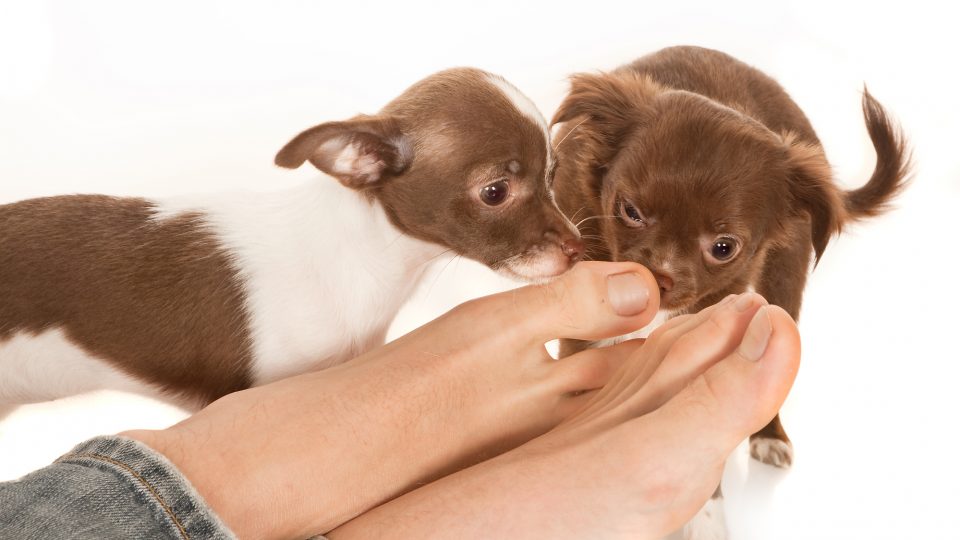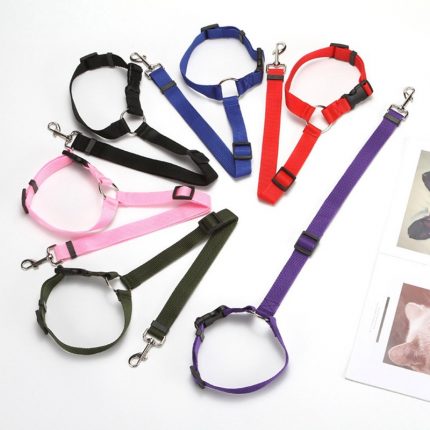Having a dog as a companion can bring immense joy and happiness to our lives. They provide us with unconditional love, loyalty, and endless entertainment. However, there are times when our furry friends exhibit peculiar behaviors that leave us puzzled and seeking answers. One such behavior is Why Does My Dog Bite My Legs When I Walk?
This seemingly aggressive behavior can be confusing and even alarming for dog owners. It is essential to understand that dogs communicate through various means, including body language and actions. In the case of leg biting, there can be several underlying reasons behind this behavior.
 The Reasons Behind Why Does My Dog Bite My Legs When I Walk
The Reasons Behind Why Does My Dog Bite My Legs When I Walk
Here are some of the reasons Why Does My Dog Bite My Legs When I Walk
- Natural Prey Drive
One of the primary reasons why your dog may bite your legs when you walk is their natural prey drive. Dogs are descendants of wolves, and their predatory instincts are still deeply ingrained in their behavior. When your dog sees your legs moving, it triggers their innate chase and nip response, similar to how they would react to small animals in the wild. This behavior is more commonly observed in breeds with high energy levels or those with herding instincts.
To address this behavior, it is essential to redirect your dog’s focus onto appropriate toys or activities. Engaging them in games that involve chasing and retrieving can help satisfy their prey drive in a more controlled manner. Additionally, providing mental stimulation through puzzle toys or obedience training can help channel their energy effectively.
- Attention-Seeking Behavior
Another reason why your dog may bite your legs when you walk is to seek attention. Dogs are social animals and crave interaction with their human companions. If they feel neglected or desire attention, they may resort to nipping at your legs as a way to engage you in play or to get your attention. This behavior can be reinforced if you inadvertently reward it by reacting or giving attention when your dog bites your legs.
To address attention-seeking behavior, it is important to establish clear boundaries and consistent rules. Ignoring the behavior and rewarding your dog with attention only when they exhibit appropriate behavior can help discourage leg biting. Engaging in regular play sessions and providing mental stimulation can also help fulfill their need for interaction and attention.
- Anxiety and Fear
Leg biting can also be a manifestation of anxiety or fear in dogs. When dogs feel anxious or threatened, they may resort to biting as a coping mechanism or a way to release pent-up stress. It is crucial to assess the overall environment and your dog’s body language to determine if fear or anxiety is the underlying cause of their behavior.
If anxiety or fear is the root cause, it is important to create a safe and calm environment for your dog. Providing them with a designated space where they can retreat and feel secure can help alleviate their anxiety. Gradual desensitization to triggers that cause fear or anxiety, with the help of positive reinforcement training, can also be beneficial in reducing leg biting behavior.
Practical Recommendations to Address Why Does My Dog Bite My Legs When I Walk
1. Redirect Their Focus
To address your dog’s leg biting behavior, it is important to redirect their focus onto appropriate toys or activities. Engage them in interactive games such as fetch or tug-of-war to satisfy their prey drive in a controlled manner. Providing them with chew toys or puzzle toys can also help divert their attention away from your legs. By offering alternative outlets for their energy and instinctual behaviors, you can help discourage leg biting during walks.
2. Establish Clear Boundaries
Setting clear boundaries and consistent rules is crucial in addressing attention-seeking behavior. Ignore your dog when they bite your legs and only reward them with attention or treats when they exhibit appropriate behavior. By consistently reinforcing positive behavior and ignoring unwanted behavior, your dog will learn that biting your legs does not result in attention or rewards. This approach requires patience and consistency, but it can be highly effective in curbing leg biting.
3. Provide Mental Stimulation
Boredom can often contribute to undesirable behaviors in dogs, including leg biting. Ensure that your dog receives enough mental stimulation throughout the day to keep them engaged and satisfied. Incorporate puzzle toys, treat-dispensing toys, or interactive feeding methods to challenge their minds. Additionally, regular obedience training sessions can provide mental stimulation while reinforcing positive behavior and strengthening the bond between you and your dog.
4. Create a Safe Environment
If anxiety or fear is the underlying cause of your dog’s leg biting behavior, it is important to create a safe and calm environment for them. Provide them with a designated space, such as a crate or a cozy corner, where they can retreat and feel secure. Avoid exposing them to triggers that cause fear or anxiety, and gradually desensitize them to these triggers using positive reinforcement techniques. Consider consulting with a professional dog trainer or behaviorist for guidance on managing anxiety-related leg biting.
5. Seek Professional Help if Needed
If your dog’s leg biting behavior persists despite your efforts, it may be beneficial to seek professional help. A certified dog trainer or behaviorist can assess the underlying causes and develop a customized training plan to address the behavior effectively. They can provide guidance, support, and additional techniques to modify the behavior and improve your dog’s overall well-being.
 Remember, each dog is unique, and the effectiveness of these recommendations may vary. Patience, consistency, and positive reinforcement are key in addressing and modifying leg biting behavior. With time, understanding, and appropriate training, you can help your dog overcome this behavior and enjoy peaceful, enjoyable walks together.
Remember, each dog is unique, and the effectiveness of these recommendations may vary. Patience, consistency, and positive reinforcement are key in addressing and modifying leg biting behavior. With time, understanding, and appropriate training, you can help your dog overcome this behavior and enjoy peaceful, enjoyable walks together.
Our featured products:
Why Does My Dog Bite My Legs When I Walk – Conclusions
There can be various reasons Why Does My Dog Bite My Legs When I Walk. It could be driven by their natural prey drive, attention-seeking behavior, or anxiety and fear. Understanding the underlying cause is crucial in addressing and modifying this behavior. By redirecting their focus, setting clear boundaries, and creating a safe environment, you can help curb leg biting and foster a harmonious relationship with your furry friend. Remember, patience, consistency, and positive reinforcement are key in training your dog to exhibit appropriate behavior during walks.















 The Reasons Behind Why Does My Dog Bite My Legs When I Walk
The Reasons Behind Why Does My Dog Bite My Legs When I Walk